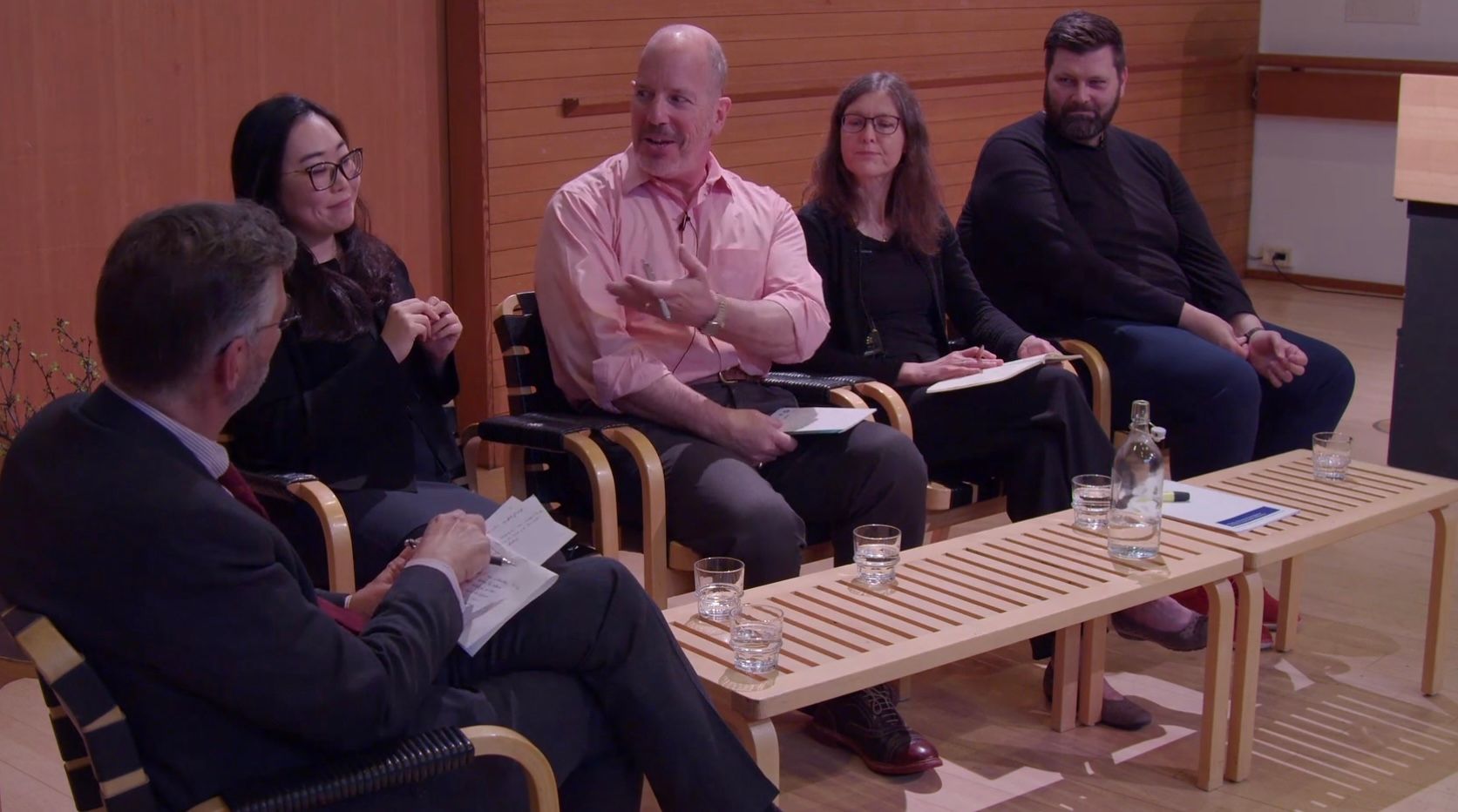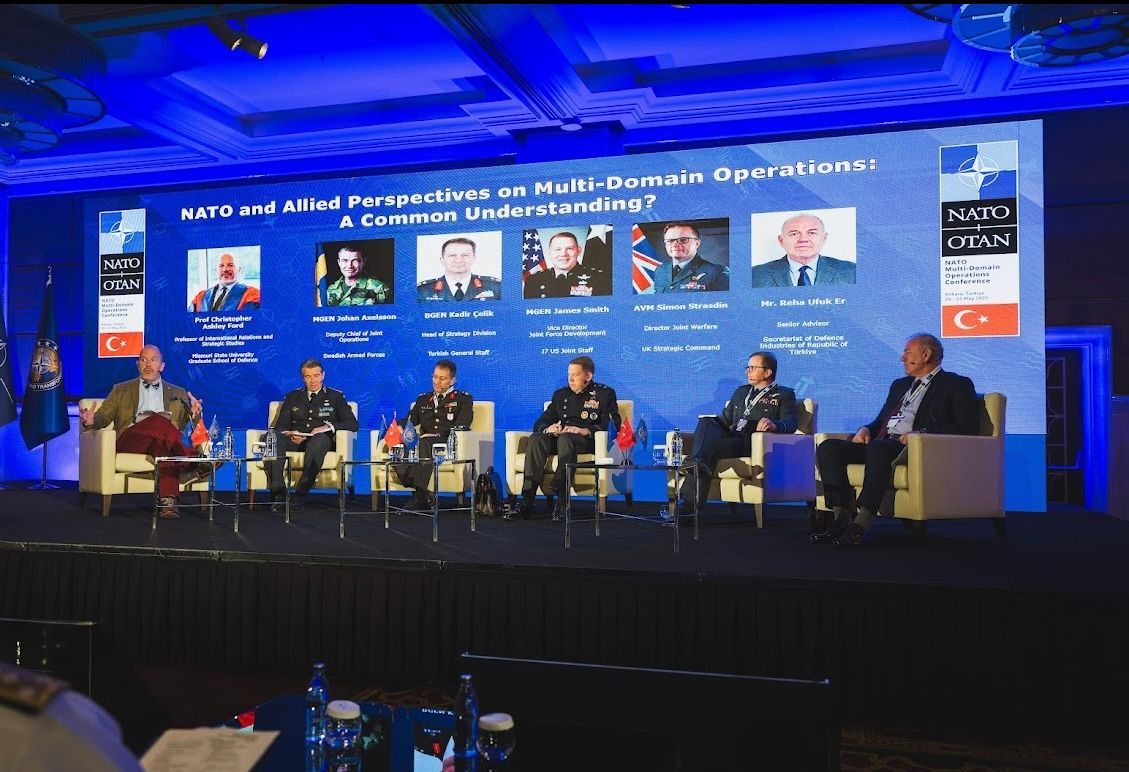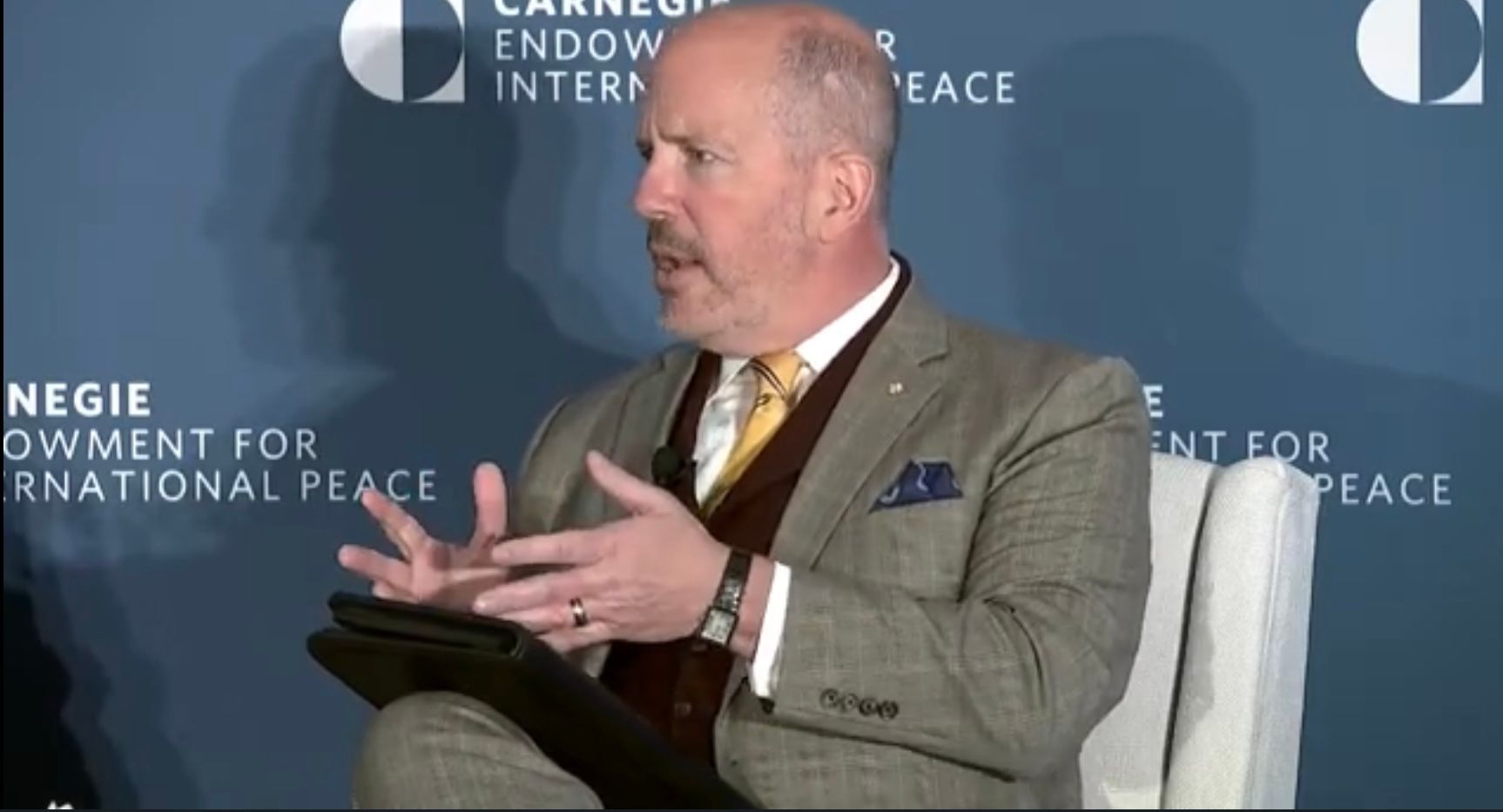Offensive Nuclear Umbrellas and the Modern Challenge of Strategic Thinking
Note:
Below is the text of Dr. Ford’s remarks to the Nuclear Security Working Group (NSWG) Congressional Seminar “Nuclear Security in the 21st Century ,” held on February 10, 2016, at the U.S. House of Representatives Visitor’s Center. Also speaking at this event were Congressman Jeff Fortenberry (R-NE), Congressman Pete Visclosky (D-IN), Under Secretary of State for Arms Control and International Security Rose Gottemoeller, and Dr. Gary Samore. Steven Clemens, editor-at-large for The Atlantic , served as moderator.
Good afternoon everyone, and thank you for inviting me. My remarks today on strategic thinking and nuclear strategy are only my own views, and do not necessarily represent those of anyone else in the U.S. Government, but I hope you’ll listen anyway.
I think a real problem for American strategic thinking in the 21st Century is that our intellectual muscles have, in this respect, atrophied. With the collapse of the Soviet threat, we basically slumped our way out of the strategy business because it just didn’t seem necessary. After all, why struggle with competitive strategy and conflict contingency planning when it was assumed we no longer faced near-peer adversaries or structural threats, and that the hydraulic forces of prosperity and democracy were soon going to sweep away the few remaining collective antagonisms of history on a rising tide of prosperous, post-national globalization?
We basically concluded that we had no need for strategy. Accordingly, for instance, where once U.S. nuclear strategists debated concepts such as deterrence, escalation dominance, and the management of competition, soon modern anti-strategists came to promise a rosy world so peaceably transformed that no one would feel the need for nuclear weaponry at all. Indeed, competitive thinking was seen not merely as unnecessary but actually dangerous , for to allow ourselves to think or speak in such terms would be a provocative “self-fulfilling prophecy” that would create enemies out of those who would otherwise eventually liberalize and emerge as friends. In other words, if only we acted as if the world were a benign one, it would be.
Well, that was then, and this is now. While we sat around wishing it wouldn’t – or pretending it wasn’t – the world was changing. It is not simply that we still have strategic adversaries (though we do), and that we do not really understand new dynamics such as the interaction of traditional nuclear deterrence with the emerging arenas of cyberspace and outer space (though we don’t). Also among our challenges is that adversaries have been exploring what is effectively a new use for nuclear weaponry – one with which we are still poorly prepared to cope: what I call the “offensive nuclear umbrella.”
Russia, for example, is engaged in a full-scope modernization of its nuclear arsenal, and is not at all shy about nuclear saber-rattling – to include the articulation of “escalate to de-escalate” nuclear doctrines, deployments of nuclear-armed missiles in Kaliningrad and elsewhere, military exercises involving simulated nuclear strikes on Eastern European countries, continuing violation of the Intermediate-range Nuclear Forces Treaty of 1987, press leaks about new nuclear tools such as a long-range underwater drone apparently designed to attack harbors and leave coastal areas under a massive cloud of toxic radioactive fallout, and ongoing aggressive probing of NATO air- and sea-space in ways not seen since the height of the Cold War. With such provocations, Moscow has been able to deploy an offensive “nuclear umbrella” with some success, using its nuclear posture to provide geostrategic “cover” under which naked territorial aggression has been able to return to Europe with Vladimir Putin’s invasion and dismemberment first of Georgia and then of Ukraine.
For its part, Beijing – while also modernizing its nuclear forces with multiple-warhead mobile missiles and a new class of missile-armed submarines – is building potent area-denial capabilities around a conventionally-armed missile force and command-and-control system that is neither organizationally nor geographically distinct from that of China’s nuclear-armed strategic forces. This would appear to be a deliberate entanglement, designed to ensure that that any attack on Chinese area-denial systems – arguably a prerequisite for U.S. regional intervention to save a threatened ally – would in effect be an attack upon China’s strategic architecture as well. In this we can see China’s version of the offensive “umbrella”: if all goes as Beijing plans, our fear of precipitating nuclear war will preclude our intervention in a regional conflict, leaving China free to abuse its neighbors unmolested.
Nor is “offensive umbrella” thinking limited to Russia and China. Pakistan, for instance, seems to have supported cross-border terrorism against India on the assumption that India’s fear of nuclear escalation would preclude retaliation. In light of reported Indian contingency planning for large-scale non-nuclear attack against Pakistan, Islamabad is also said to be building “battlefield” or “tactical” nuclear weapons at a furious pace, but the occasional low-level cross-border provocations originating in Pakistan over the last decade or so appear to have aimed to stop short of a level of violence (and undeniable Pakistani government culpability) likely to provoke responses that could lead to a nuclear exchange.
In fact, an offensive “nuclear umbrella” may not even require actual nuclear weapons. Iran is developing into a test case of how the possession even merely of a weapons “option” creates an empowering offensive “umbrella” of its own. We are already seeing this affect U.S. policy on Iran, which seems now to prioritize preservation of the nuclear status quo over robust responses to Iranian ballistic missile work, support for terrorism, and regional destabilization.
Small wonder, then, that America’s countervailing conventional and nuclear power is back in demand, and a hungry market is once again emerging for serious thinking about the complexities of deterrence and conflict contingencies. In this new nuclear age, policymakers are rediscovering that nuclear weapons are actually useful in myriad ways, for good or for ill. But we are still ill-prepared for such a world.
Make no mistake: I’m not complaining that we cut back our forces after the Cold War, for that was reasonable, given how the threats we faced had diminished. But we didn’t just shrink our forces. We froze in place systems, postures, and concepts developed for Cold War contexts. We cut to the bone our capacity to regenerate force structure if needed and to develop new tools and approaches for changing times. Basically, we hardwired ourselves around the placid strategic assumptions of the 1990s, lost the habit of thinking strategically, and became allergic to exploring concepts that might better equip us for an unpredictable future.
To be sure, we are now reawakening to the fact that our environment is not strategically benign, and that we still need to engage with strategy in a deep way. But this is only the beginning of a long road. We owe it to whomever wins the 2016 election to be able to provide more coherent, integrated answers to these challenges than we can presently muster.
Thank you.
-- Christopher Ford








